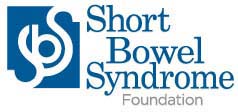Management of Care for Short Bowel Syndrome:
Short bowel syndrome (SBS) is a condition characterized by the inadequate absorption of nutrients due to the surgical removal of a significant portion of the small intestine. This can result from surgical resection, congenital defects, or diseases that damage the small intestine. Managing short bowel syndrome requires a comprehensive approach to address nutritional deficiencies, fluid imbalances, and other complications. Here is an overview of the general management of short bowel syndrome:
- Nutritional Support:
- Parenteral Nutrition (PN): In severe cases where oral or enteral nutrition is insufficient, patients may require intravenous nutrition (parenteral nutrition) to meet their nutritional needs. This involves providing nutrients directly into the bloodstream.
- Enteral Nutrition (EN): Gradual reintroduction of enteral nutrition is important to stimulate the remaining intestine and improve its absorptive capacity. This may involve using specialized enteral formulas.
- Dietary Modifications:
- Small, Frequent Meals: Consuming smaller, more frequent meals throughout the day can help manage symptoms and improve nutrient absorption.
- Nutrient-Dense Foods: Emphasis on nutrient-dense foods is crucial to ensure that the limited intestinal absorption is maximized. This may include lean proteins, complex carbohydrates, and healthy fats.
- Fluid and Electrolyte Management:
- Oral Rehydration Solutions (ORS): For individuals with residual intestinal function, oral rehydration solutions may be used to manage fluid and electrolyte imbalances.
- Monitoring Electrolytes: Regular monitoring of electrolyte levels is important to address any deficiencies or imbalances.
- Medical Therapies:
- Bile Acid Sequestrants: Medications such as bile acid sequestrants may be prescribed to manage bile salt malabsorption.
- Anti-diarrheal Medications: Medications to control diarrhea may be recommended to improve the quality of life for individuals with SBS.
- Surgical Interventions:
- Intestinal Lengthening Procedures: In some cases, surgical procedures to lengthen the remaining small intestine may be considered to improve absorption.
- Intestinal Transplant: For severe cases, intestinal transplantation may be considered as a last resort.
- Monitoring and Follow-up:
- Regular Medical Monitoring: Patients with short bowel syndrome require regular medical monitoring to assess nutritional status, manage complications, and adjust treatment plans as needed.
- Nutritional Assessments: Periodic assessments of nutritional status, including laboratory tests, help guide the management plan.
- Psychosocial Support:
- Counseling and Support Groups: Dealing with a chronic condition like short bowel syndrome can be challenging, and patients may benefit from counseling or support groups to address psychological and emotional aspects.
It’s important to note that the management of short bowel syndrome is highly individualized, and healthcare professionals work closely with patients to tailor treatment plans based on their specific needs and the extent of intestinal resection. Early intervention and a multidisciplinary approach involving nutritionists, gastroenterologists, and surgeons are key components of successful management.
